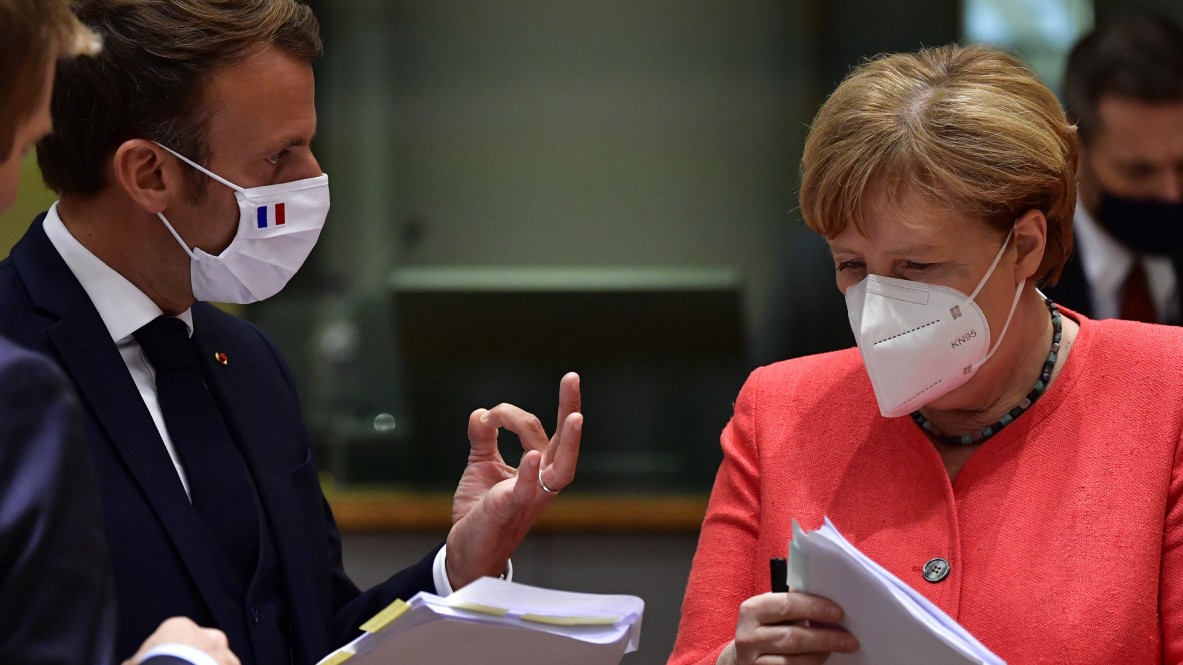Well, of course, Peter Gauweiler looked at the EU reconstruction fund. The lawyer from Munich is known for suing the Federal Constitutional Court in Karlsruhe against the bond purchase program of the European Central Bank. Some say that he is passionate about ensuring that things are legally right in Europe. Others call him stubborn. All the more groundbreaking is what the CSU politician says about the fund, which for the first time authorizes the European Commission to take on debts on a large scale. Does that fit into the EU treaties? In principle yes, says Gauweiler on Wednesday the Süddeutsche Zeitung“I will not complain against it”.
Gauweiler’s position is an important signal for the vote that will take place in the Bundestag this Thursday. The MPs are to pass the law on the EU reconstruction fund. Formally, an absolute majority of the governing parties is sufficient. In fact, the coalition is aiming for a two-thirds majority, the FDP and the Greens should vote together with the Union and the SPD. The aim is to make the resolution more constitutionally secure. After all, it marks a change of course in European politics that would have been unthinkable a year ago.
For a long time it was taboo to even talk about the fact that the EU could get into debt. Just think of the heated debates about euro bonds or corona bonds. The virus, which is rampant in all EU countries, has led to a rethink. In the Federal Ministry of Finance, experts worked on a European rescue fund, France and Germany supported the idea, and all EU states came to an agreement in lengthy negotiations.
This Thursday, the Bundestag has to approve the complicated legal structure of an EU rescue fund, which is allowed to take on a one-time debt of 750 billion euros, most of which is given as grants to the states. The funds are linked to projects, which in turn are named in national reform plans. Because the MPs have the final decision on the law, Gauweiler is satisfied. And also because the EU countries guarantee the debts up to the amount of their contribution to the EU budget. From 2027, they are to be repaid, also with the help of new taxes, for example for plastic, or the financial transaction tax.
The FDP created a mood against it – initially
For the FDP, the vote is not just any. It will have to be measured by whether it has learned in the meantime that being able to govern also means being able to make compromises. Party leader Christian Lindner will have considered that he will have to support the EU fund if he is appointed finance minister in a new government coalition after the federal election. It would not exactly speak for his ability to govern if he were to vote against it now.
On the other hand, his budget expert Otto Fricke had raised the mood against the law on Monday: The federal government is proceeding according to the motto “eat or die”. Which in turn angered officials in the Ministry of Finance, who were annoyed at having offered “endless” talks. Franziska Brantner, the Greens’ Europe expert, confirmed that she had been informed “as much as never before”.
The waves beat high until the situation suddenly calmed down on Wednesday. The parliamentary group will agree, said FDP parliamentary group vice-president Christian Dürr Süddeutsche Zeitung. So is it? Yes, it is important for the FDP that liberals such as the Dutch Prime Minister Mark Rutte have also negotiated the matter. In addition, the money is linked to national reform plans, “everyone has to do their homework.” Germany too. For years, the federal government has only implemented an average of one in ten proposed reforms.
AfD founder Bernd Lucke is against it
The Greens also agree. Brantner criticized, however, that the federal government does not consider it necessary to discuss the German reform plan in the Bundestag. Citizens do not know what EU money is being spent on. “The coalition decides in the way of the landlord and offsets the EU money with old projects instead of investing them in European rail, energy and data networks.” Nevertheless, there is a two-thirds majority, if there are not too many dissenters in the Union.
Meanwhile, Bernd Lucke, who once founded the AfD, has raised an objection. He announced a constitutional complaint in Karlsruhe and called on the judges to urge Federal President Frank-Walter Steinmeier not to sign the law after approval by the Bundestag and Bundesrat. Otherwise Germany would be bound by the treaty before Karlsruhe examined it.
– .


